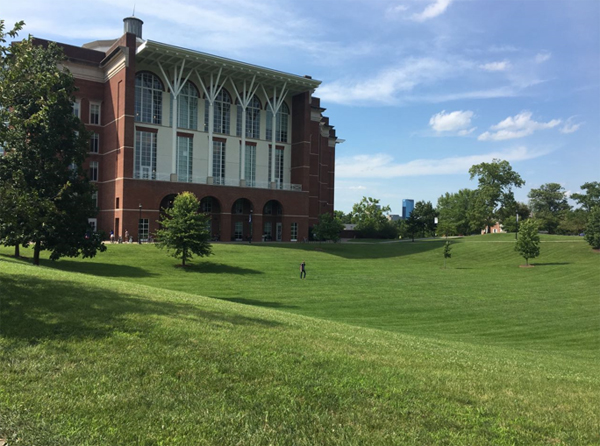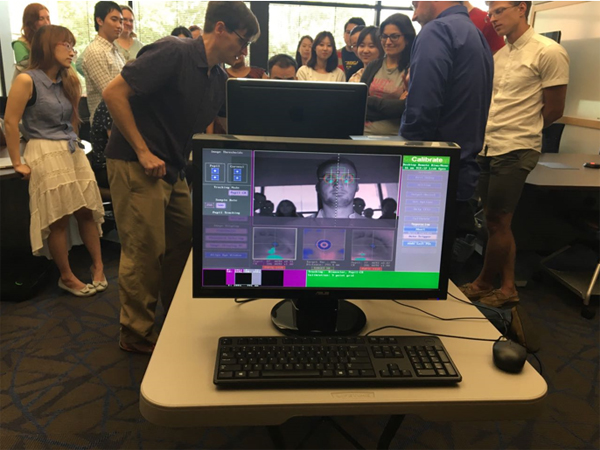Trip to the 2017 LSA Linguistic Institute
By Hao, Scarlett Tun
Thanks to the funding support from the ‘Pilot Scheme on International Experience for RPg Students’, I had the chance to participate in the 2017 Linguistic Society of America (LSA) Linguistic Institute this July. The LSA Linguistic Institute is a world-renowned linguistics summer school, which aims to provide advanced training in linguistics that is not readily available through the regular course offerings in a single academic institution. This year, it was hosted by the College of Arts and Sciences at the University of Kentucky from 1 July to 5 August.

William Young Library, University of Kentucky
I work on Psycholinguistics, so the courses I took were Introduction to Psycholinguistics (instructor: Matthew Traxier, University of California, Davis), Experimental Syntax (instructor: Jon Sprouse, University of Connecticut), Experimental Approaches to Verb Meanings (instructors: Lisa Levinson, Oakland University; Matt Husband, University of Oxford), Statistical Modeling with R (instructor: Josef Freuhwald, University of Edinburgh), Eye-tracking for Linguistic Research (instructor: Kevin McGowan, University of Kentucky), and Introduction to Neurolinguistics (instructor: Jonathan Brennan, University of Michigan). Although I had done an Intro to Psycholinguistics before, I was still deeply attracted by Matthew’s lectures. I most enjoyed when he made theoretical comparisons between different psycholinguistic models, and when he made clear conflicts across theories to the latest experimental evidence. Experimental Syntax and Experimental Approaches to Verb Meanings are the two courses that are directly related to my research. They covered not only experimental methods, but also how they are realized in real experiments that get published in top journals. Stats with R is another necessary skill for my PhD research. Learning R was the most fulfilling experience of the summer. It is hard indeed for someone like me who has very limited programming experience. But I was very excited about the immediate rewards of drawing beautiful (geeky) graphs and doing statistical tests. Eye-tracking is something I have been interested in for a long time, and I finally got the chance to have some hands-on experience with it during the summer school. Lastly, the Intro to Neurolinguistics course was also very exciting. It was amazing to see how methods and evidence from neuroscience can be used to give us a better understanding of how languages work in the brain.

From the class on Eye-tracking for Linguistic Research
This is the most helpful training in linguistics I have yet had during my PhD, and I am sincerely grateful for getting the support from our School and my supervisor, Janny Leung, and for the funding support from School and Faculty to make this trip possible.

Our apologies, you must be logged in to post a comment.